Format it however you like. It is the editor's job to display code in whatever style the reader prefers. I like the C-style hierarchical tree-shaped format with single brackets on their own lines (all the LISPers boil with rage at that :-)))))))))))))
But, I sometimes use this style:
(fn rep
([lst n]
(rep (rest lst)
n
(take n
(repeat (first lst)) ) ) ) )
which is an update on the traditional style in which brackets are spaced (log2 branch-level)
The reason I like space is that my eyesight is poor and I simply cannot read dense text. So to the angry LISPers who are about to tell me to do things the traditional way I say, well, everyone has their own way, relax, it's ok.
Can't wait for someone to write a decent editor in Clojure though, which is not a text editor but an expression editor**, then the issue of formatting goes away. I'm writing one myself but it takes time. The idea is to edit expressions by applying functions to them, and I navigate the code with a zipper, expression-by-expression, not by words or characters or lines. The code is represented by whatever display function you want.
** yes, I know there's emacs/paredit, but I tried emacs and didn't like it sorry.
